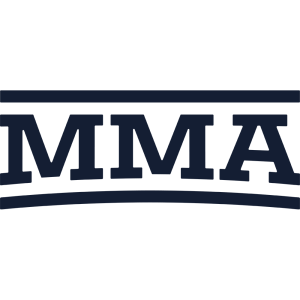Ken Shamrock explains why he won't name an MMA Mount Rushmore
27/10/2023 21:00
Ken Shamrock has seen it all and done it all in the world of combat sports, so if there's anyone qualified to determine who should be on the Mount Rushmore of MMA, it's him.
But it's precisely because of the lifetime he's spent in the fighting realm that he won't do it.
On Friday, Shamrock's Valor Bare Knuckle promotion hosts its first event since before the COVID-19 pandemic shut down the sporting world in 2020. Ahead of the occasion, Shamrock spoke to MMA Fighting about a variety of topics, including how he would have fared in a world where he could have competed in bare-knuckle boxing on a wider platform, the recent business dealings involving UFC, WWE, and Bellator, and yes, why he can't pick four names to put on MMA's Mount Rushmore.
(The following questions and answers have been edited for grammar and clarity.)
You've starred in MMA and pro wrestling, would you have liked to have competed in bare-knuckle earlier in your career?
I did do it. I would have loved to have seen where it is now, where it's a little bit more out in the public's eye and it's more of an event where it's strict bare-knuckle. Where as when I did it, it was mixed martial arts bare-knuckle and then, of course, I did it where you fight for money in the back of a bar somewhere. So I did experience it, but not at the professional level like this.
With Valor BK, you're wearing a number of hats, including helping to scout talent. Has seeking up-and-coming names revitalized your love of combat sports?
When I got out of fighting, I was basically pushed out. I think because I didn't want to retire. Fanbases and promotions were coming to me, I think I could still go. I fought a long time. But the one thing I never wanted to do was to come back, retire, and come back again, because it's hard to do. I felt like when I stepped away, I could feel full with what I'd done in my career.
I've never had the urge to go back, but I've had the urge to stay involved and be a part of fighting. So that's why I'm involved with building Valor, things are different. That's the exciting part to me. I'm not fighting on the inside anymore, but I'm fighting on the outside and now I can have other people enjoy what I enjoyed doing. For me, that's really exciting and satisfying."
I made sure to check because so many legends of the business get asked this, but I don't think you've ever named an MMA Mount Rushmore? What four fighters would you put on it?
I won't do that just like I won't pick fighters to watch on a card. There's 50 to 60 guys that I believe that have been very impactful in bringing the UFC to where it is today. I would go on and say as the UFC gets older and older, the past generation, guys like Royce Gracie, Mark Coleman, Frank Shamrock, Guy Mezger, Jerry Bohlander, I could go on. That era was very, very instrumental in being able to take the UFC, form it, and bring it money to keep moving forward.
It's hard to really explain how challenging it was for the earlier guys fighting because there was nothing set. Rules worked by accident. You didn't know who you were fighting, you didn't know what the styles were, it was just a whole lot that people don't understand today when they talk about GSP, Conor McGregor—Yes, those guys are great and have done a lot, but if you go back to the beginning, in those days, it was a lot harder to be a superstar than it is today.
When people think about fighters who were major names in both pro wrestling and MMA, you're still one of the first that comes to mind. What do you think of the UFC and WWE crossing over business-wise and becoming the TKO brand?
Yeah, it was very difficult because when I made the decision [to go to the then-WWF] it was more of a financial decision because of where UFC was at the time and where I was at at the time with fighters and at a group home with at-risk kids, my family. I had a lot of financial responsibilities and it was a lot of people. So I wasn't able to make money the way I needed to during that time. … But I chose to wrestle to support the fighters, to support the group home kids, and support the family, but I had to do something other than what I wanted to do, which was fighting because of the financial strain the UFC had at the time with going to court, legal battles.
It was very risky, but I decided I could make this work. I believed I could do what I did in pro wrestling. … I saw the opportunity to bring those worlds together. And as soon as I started being successful, I didn't have people hating on me. It was exciting to see the crossover and I was a part of that.
Bellator is on the verge of being sold and we could see the end of that promotion as we know it. You worked with Bellator briefly, what are your thoughts on its possible closure?
It's a shame. Anytime you see something close down, especially something that I was a part of, being able to help out there. I know my [trilogy] fight with Royce Gracie wasn't the iconic fight you'd want to see, but it's still part of history.
Tickets are available now for VBK 2 and a live stream airs Friday on the Valor BK official website (free subscription required) beginning at at 7 p.m. ET.


